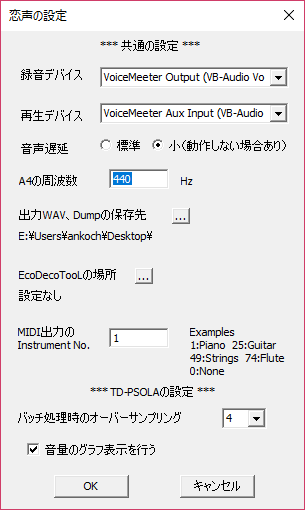

- Voice meeter static how to#
- Voice meeter static driver#
- Voice meeter static Patch#
- Voice meeter static software#
On Voicemeeter, go to Menu > System Settings and highlight IN 1 Left and IN 1 Right from available options.
Voice meeter static Patch#
Select Hardware input 1 > Select input device Step 12: Route channels to virtual audio cables Step 13: Highlight IN 1 Left and IN 1 Right Patch Inserts Step 9: Open Voicemeeter and set volume threshold Step 10: Set hardware output devices Step 11: Set microphone Set Voicemeeter VAIO 3 Input on your preferred streaming service. Next, go to Sound > App Volume and Device Preferences on your device. Open the Sound Control Panel Step 5: Go to Playback Tab Step 6: Select Voicemeeter AUX input as Default Communication device Step 7: Select Voicemeeter as Default Step 8: Go to Recording Tab and Select Voicemeeter Output as Default Output Device Next, go to Sound Settings on your computer. Voicemeeter Potato is also available for download on the next tab Step 4: Restart your computer and open Voicemeeterįirst, restart your computer and open Voicemeeter. Click on Virtual Audio Cable tabĬlick Download Step 3: Download Voicemeeter Banana or Potatoĭownload Voicemeeter Banana from its designated tab Next, download the VB-CABLE Virtual Audio Device Driver.
Voice meeter static driver#
Next, type the keyword “Voicemeeter” (without quotes) and hit Send or Enter.įrom the search results, click on the website with address Step 2: Download VB-CABLE Virtual Audio Device Driver
Voice meeter static how to#
How to Use Noise Gate on Voicemeeter Step 1: Google Voicemeeterįirst, access the Google search engine through the default search bar on your browser. The gate created by plugins work through Voicemeeter to shut out any unwanted noise coming from your environment or accessories.

Voice meeter static software#
I then send that strip out to my software (OBS, Skype or Zoom, in my case). I then route DP out to Voicemeeter via a SEND bus from my Pre-Master track to an unused output on my ASIO hardware audio interface (I have an 828 mk3 hybrid, so I send it to an ADAT output) and then use Voicemeeter's channel strip assignments in the System Options section to send that channel to the strip. Once you do that, you have access to all of the output ports on that ASIO hardware. The ASIO devices are usually listed near the bottom of the drop-down list. The key in making that work is you need to set Voicemeeter's A1 monitor (upper right drop-down) to your ASIO hardware interface.

However, I did find a workaround using Voicemeeter Banana. Were you able to fix it?īack in 2017 we tried but were unsuccessful. I'm having this exact problem and haven't been able to find a solution. DP9 works with my audio interface ASIO driver but I'd like to use Voicemeeter so that I can record videos. Voicemeeter works fine as an output for Kontakt or Cubase 9 so I know the set-up is okay. Laithar wrote:Can anyone confirm if Voicemeeter works with DP9 as an ASIO driver and if so, can anyone suggest why DP9 might be driving Voicemeeter to +273 dB hence a very loud white noise/static sound.


 0 kommentar(er)
0 kommentar(er)
